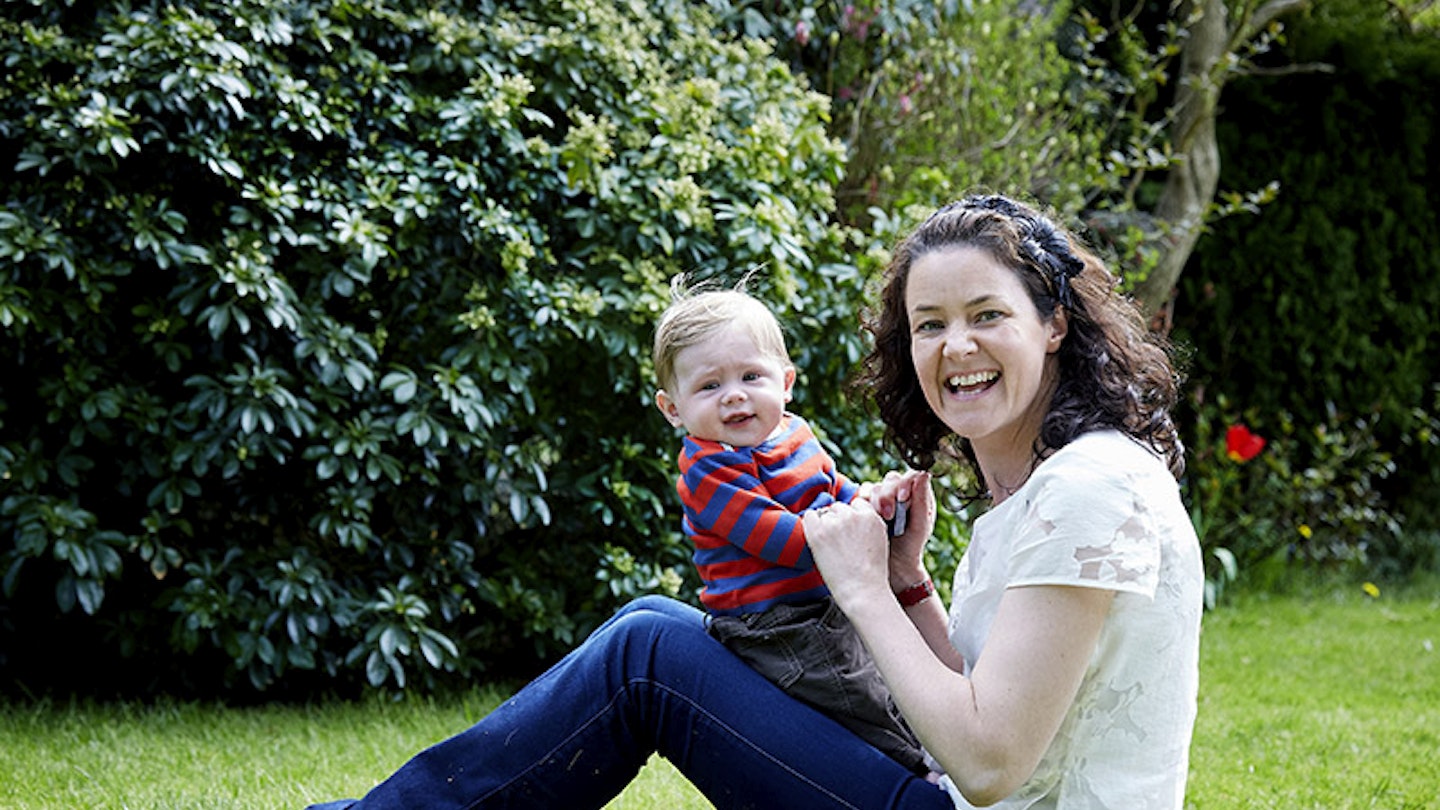Following two miscarriages, Liz Steward, 42, from Surrey, gave birth to a boy, Oliver, who's now 23 months. When she again fell pregnant last year, she opted to have the IONA test.
I feel very blessed to have two amazing children, but prior to having our first child we unfortunately suffered two early miscarriages.
So when I became pregnant with my second child my husband and I were excited but also anxious about the journey ahead and whether the pregnancy would be straightforward.
At the 12-week scan at the Royal Surrey hospital we found out that there was a high risk of Down’s syndrome. This was based on the calculated risk determined from the blood analysis, my age and historical factors.
>> READ: “I was the first woman in the UK to be offered the IONA test”
It was encouraging though that the scan didn’t show any abnormalities and increase the risk factors further.
We were then given further information on our options for additional screening, which included amniocentesis and the IONA test.
I’d heard about IONA on the news a few days earlier. It seemed like an amazing step forward in protecting the health of unborn babies. Also, it provided accurate results, and didn’t subject women to the stressful ordeal of an intrusive test.
After having our hopes raised, it was disappointing to learn that the IONA test was not offered on the NHS. Our options at the Royal Surrey were either to have the amniocentesis test through the NHS, or to have the IONA test privately.
It was a hard decision, but we decided to go ahead with the amniocentesis. Why? We understood that we could get the results quicker than with IONA.
We were told that it would take three weeks to conduct the analysis for the IONA test at a laboratory in America.
So I was given an appointment for amniocentesis at St George’s Hospital. But incredibly, when I arrived I was told that the hospital had just that week begun offering the IONA test on the NHS. It was such a relief to not have to put my baby’s life at risk.
That there was no potential to cause a miscarriage was by far the key factor for us in deciding to do the IONA test
That there was no potential to cause a miscarriage was by far the key factor for us in deciding to do the IONA test.
Plus, if results came back indicating the baby had Down’s syndrome then further analysis would be carried out to 100 per cent confirm it.
The test was straightforward and involved simply taking a sample of my blood. It took five minutes, if that, and was certainly quicker than finding a car parking space!
The results were back within five days. The hospital rang to share the great news that there was minimal risk of Down’s syndrome, and I felt such a mixture of emotions: relief, excitement and elation.
The IONA test provides peace of mind for couples who have been given a high risk factor
This is why I’d recommend the IONA test to pregnant women. Yes, it was quick and simple but more importantly, it provides peace of mind for couples who have been given a high risk factor, or for those who would like additional screening.
After the test, I’m glad to say that my pregnancy was fairly straightforward right up until the 36th week when my medical team became concerned about the baby’s growth. The decision was taken to deliver him early.
Our bundle of joy, Thomas, arrived five weeks ahead of schedule, by C-section, weighing 5 lb 9 oz. He was thankfully fit and well and in time for Christmas!
Thomas has just turned five months and is thriving. He’s so interested in the world he doesn’t want to sleep and loves chatting at 3am.
He's still quite titchy as it took a few months to work out that he had a dairy allergy. We had to work to get his feed right and he went down to 0.4th percentile for weight, but he’s now catching up and putting the pounds back on.
